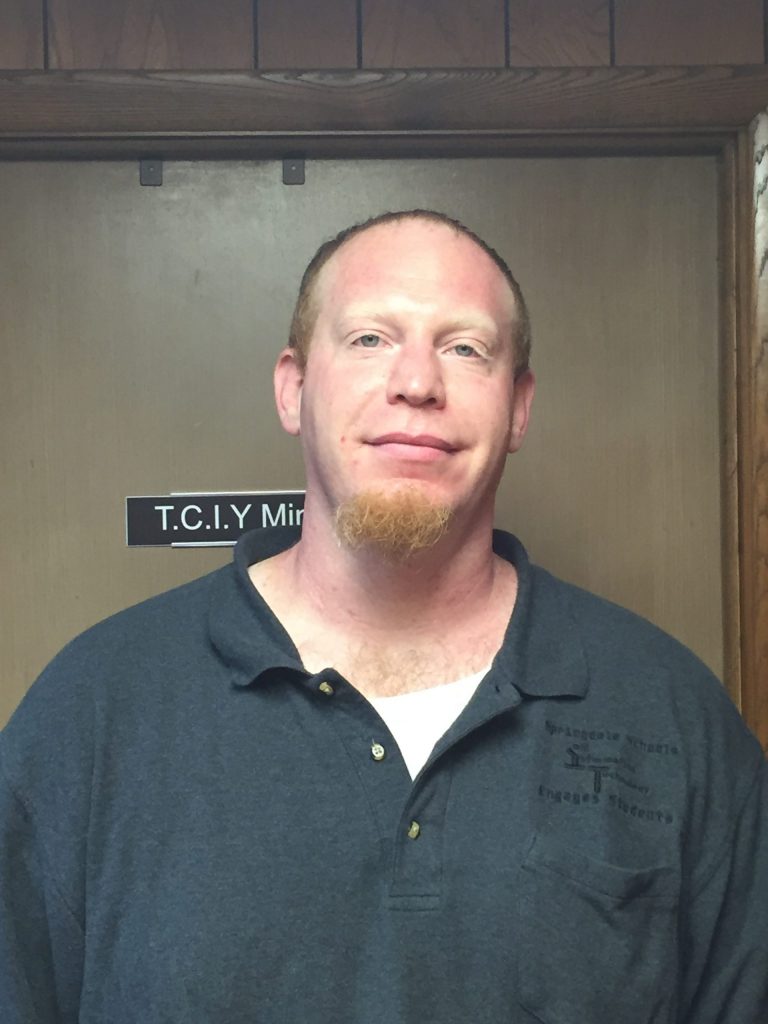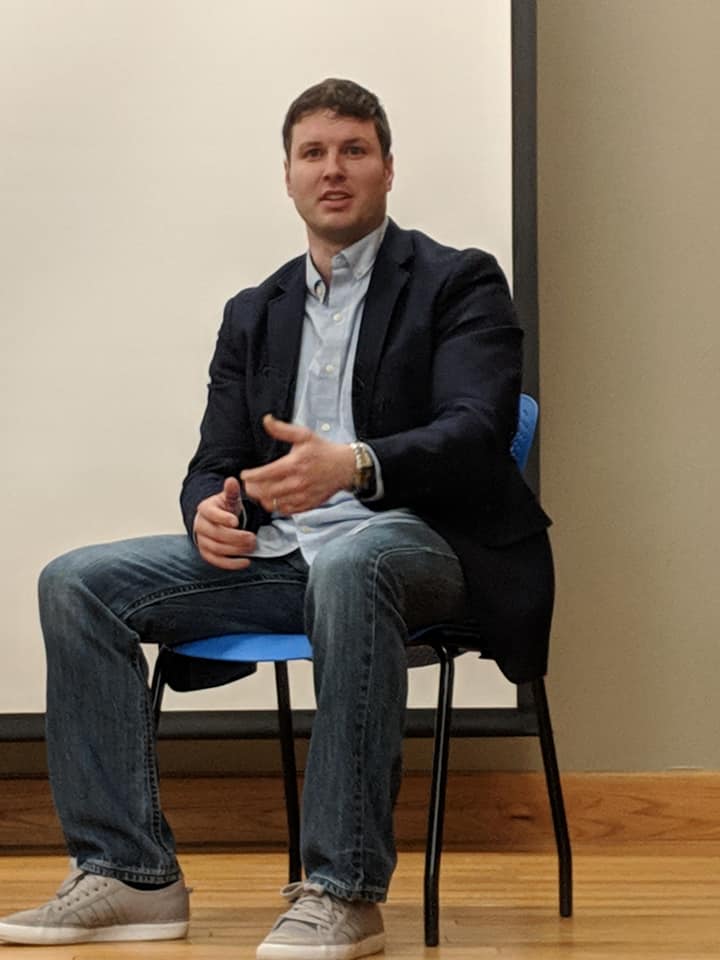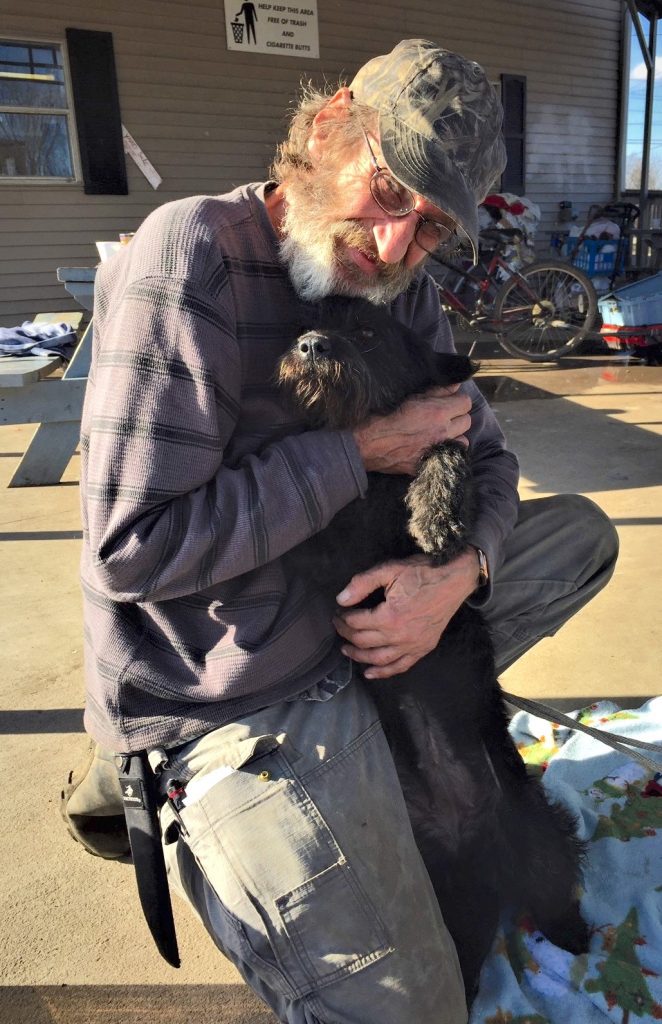By Whitney King
Published June 29, 2020
FAYETTEVILLE, Ark. — Coty Jeter has been chronically homeless since age 13. His attempts to find a job and housing have been greatly complicated by his criminal record, which includes 18 felonies ranging from first-degree forgery to residential burglary to drug possession, according to Arkansas court records.
With his record, Jeter said finding permanent housing is “pretty hard, because a lot of places don’t give you any kind of a chance.” His struggle to re-enter society is not unusual. According to a 2015 report by the Community and Family Institute, 72% of the nearly 2,500 homeless people in Northwest Arkansas have been arrested at least once, and 59% report one or more arrests with a felony charge.


For some, getting released from incarceration means going home to their families. For others, it means the start of a new kind of sentence: homelessness, unemployment and missed opportunity.
Nick Robbins, the executive director of Returning Home, a transitional housing initiative in Springdale, said finding a job is “extremely difficult” for felons. Returning Home works with people just released from prison. Robbins said employers are unforgiving of criminal records. A “majority of them would just throw away your application. You’ll never even hear from them,” he said.
Through Returning Home, Jeter has found a path toward stability. After completing a 90-day transitional program, Jeter found a full-time maintenance job at a poultry processing plant called George’s Inc. in Springdale. He currently resides at a transitional facility and volunteers five to 10 hours a week at the facility, helping others recently released from custody.
For other felons, finding stable work is nearly impossible. Jack Kuhnle Jr. has been chronically homeless since 1973. Kuhnle claims that he has several felonies, including a murder charge that was later dismissed. The Spokesman-Review in Spokane, Washington, reported Kuhnle served a 6 1/2-year sentence there for second-degree murder and first-degree manslaughter, but his case was overturned because of a 2005 state Supreme Court decision. He said his criminal history makes finding a home difficult.
“Being a felon, fresh out of prison up there [in Washington], it was real hard to get work,” Kuhnle said. “Things got real bad, couldn’t find a job.” He came to Northwest Arkansas in 2005 in hopes of finding work. Fifteen years later, he is still homeless and unemployed.


For Kuhnle, finding affordable housing is a significant challenge. His only income is a $785 monthly check from Social Security for disability and retirement, which puts renting his own apartment out of reach. In Fayetteville, the average apartment rent was $642 in 2016, according to the U.S. Department of Housing and Urban Development.
The struggle Kuhnle faces, being homeless and unemployed, is multifaceted.
“If you’re filling in an application, and you don’t have an address to put down, you don’t have a cellphone number, and you have a criminal record, the likelihood of you getting employed is slim to none,” Robbins said.
Another roadblock is the digital divide in the homeless community. Many businesses only hire through online applications, creating yet another disconnect between employers and homeless felons.
“Most of the folks in the homeless population, they don’t have those things,” Robbins said. “As the world has progressed with technology, the population in poverty … haven’t adapted to filling in applications online.”
Robbins can empathize with Jeter and Kuhnle. He also served time in prison — more than seven years for two armed robberies. He said he “was greatly impacted by the volunteers and the organizations that were coming in and pouring into us” prisoners.
Returning Home helps address the needs of formerly incarcerated people, assisting with men’s transitional housing, food, clothing, therapy, hygiene, recovery classes, mental health, life skills and job placement. More than 250 people graduated from the 90-day program in the past year.
Another organization assisting people released from prison, Genesis Church, provides free expungement services, which helps first-time offenders to have their records sealed from state and federal court records. Glenn Miller, the local mission coordinator for Genesis Church, said the problem of formerly incarcerated people being shut out of housing or jobs is “devastating.”
Miller said every apartment complex and prospective employer will run a background and credit check. “And if something comes up, a lot of the property managers will just say no,” he said. Making matters worse, the applicant usually has to pay for the background check.
King is a reporter for The Razorback at the University of Arkansas. She also took the lead photo for this story.




